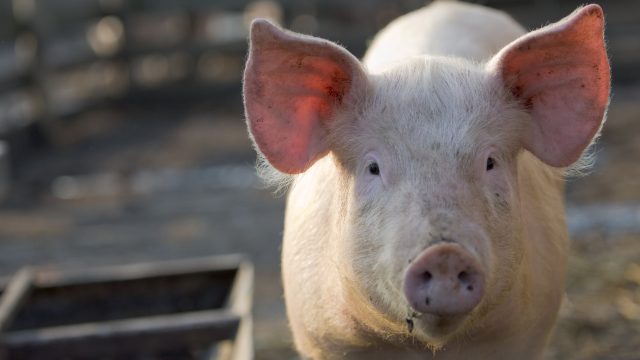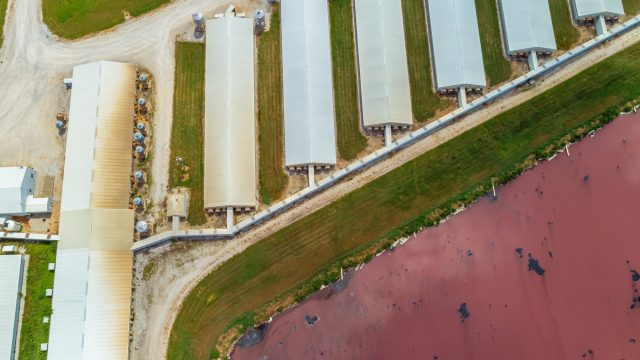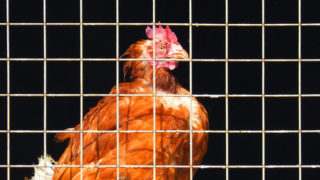
Czech Republic Bans Cages for Hens
By Nicole Pallotta, Senior Policy Program Manager
Contents
Summary/intro
On November 13, 2020, the Czech Parliament approved a ban on the use of cages to confine hens used for their eggs or for breeding. 1 Following final approval by President Miloš Zemanh, the new law will become effective in 2027 after a 7-year phase-in period and affect approximately 4.5 million hens per year.
Michaela Šojdrová, a Czech Member of the European Parliament, wrote in a statement:
We strongly believe that all animals should be treated with respect to their natural needs. That is why we want to see hen cages banned as soon as possible across the whole of the EU. I warmly welcome the Czech government’s commitment to press for this.
Šojdrová noted that in October 2020, End the Cage Age — a European Citizens’ Initiative calling for a prohibition on all cages in animal agriculture — was signed by 1.4 million citizens from every EU member state and submitted to the European Commission. 2
Caged Versus Cage-Free Housing Systems
Cages for hens are also banned in Slovakia, Germany, Austria, and Luxembourg. 3 Czech policymakers and animal activists are now calling on the European Union (EU) to enact similar legislation.
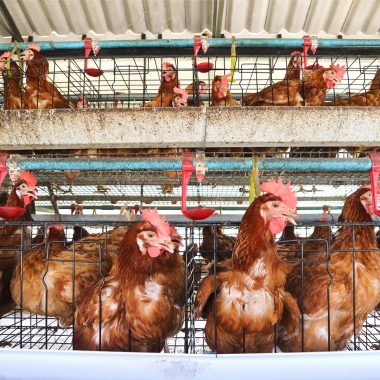 The EU outlawed the keeping of hens in battery cages in 2012 after legislation passed in 1999 that had a 12-year transition period. However, “enriched” cages — also called furnished or colony cages — are still allowed. Enriched cages must provide hens with at least 750 cm² of cage area, a nest, perching space, litter to allow pecking and scratching, and unrestricted access to a feed trough. However, even in enriched cage systems, hens are overcrowded and prevented from engaging in natural behaviors, such as dust-bathing, foraging, proper nesting, and resting undisturbed. 4
The EU outlawed the keeping of hens in battery cages in 2012 after legislation passed in 1999 that had a 12-year transition period. However, “enriched” cages — also called furnished or colony cages — are still allowed. Enriched cages must provide hens with at least 750 cm² of cage area, a nest, perching space, litter to allow pecking and scratching, and unrestricted access to a feed trough. However, even in enriched cage systems, hens are overcrowded and prevented from engaging in natural behaviors, such as dust-bathing, foraging, proper nesting, and resting undisturbed. 4
Approximately half of the hens on commercial egg farms in the EU are currently kept in cage-free systems. In contrast, that percentage is about 25% in the U.S. 5
Consumers are often confused about the meaning of various housing systems — and their respective labels on egg cartons. It is important to note that “cage-free” does not mean the animals are treated well. Hens may still be housed in overcrowded conditions inside a barn or warehouse and never allowed to go outside.
As we noted in an earlier Animal Law Update regarding cage-free laws in the U.S.:
Under cage-free housing systems, hens are typically still kept in tightly crowded conditions, which causes psychological stress and physical danger from hen-on-hen violence and stampeding behavior, in which hens die in ‘pileups.’ Air quality in overcrowded barns is also poor. While ‘free range’ is defined by the U.S. Department of Agriculture as requiring at least some access to outdoors, what that means in practice is variable. Outdoor access can be fulfilled, for example, by a tiny door leading to a small screen-enclosed porch with a roof and hard floors. It does not mean grass below or sky above — the likely scenario conjured in consumers’ minds by the descriptor ‘free range.’
. . . . No matter what the housing system, hens are killed when their egg production declines. They are also subject to cruel but standard factory farming practices such as debeaking — which involves partial removal of a hen’s beak without anesthesia, and can cause acute and chronic pain. Debeaking is banned in some European countries but common practice in the U.S., and is done to mitigate injuries caused by close confinement.
Deceptive Labeling
Adding to confusion over egg labels, companies that exploit animals often engage in deceptive labeling to create the false notion that animals are kept in better conditions than they actually are. For example, egg cartons may display pictures of hens foraging on grass under sunshine, while in reality the hens who laid those eggs were never allowed outside and will never see the sky until, perhaps, the day they are loaded onto the transport truck that will take them to their slaughter.
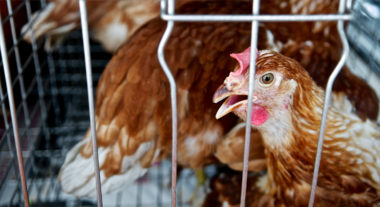
One of the ways the Animal Legal Defense Fund fights to protect farmed animals is by holding companies accountable for using labels to deceive consumers who care about animals — rather than implementing actual changes that would improve conditions of farmed animals such that they reflect the image presented on labels.
For example, in 2018, the Animal Legal Defense Fund reached a settlement in a consumer protection lawsuit against Trader Joe’s for selling cage-free eggs in cartons with imagery misrepresenting the conditions in which hens used by the egg industry are confined. In 2014, the Animal Legal Defense Fund settled a false-advertising lawsuit against Judy’s Family Farm Organic Eggs for using imagery on packaging that led consumers to mistakenly believe the hens had significant outdoor access.
For more information about egg production practices and the meaning behind sometimes-confusing egg carton labels, see the Animal Legal Defense Fund’s Egg Labeling Regulations Guide.
Cage-Free Laws in the U.S.
While “cage-free” systems are far from ideal and leave immense room for improvement, the removal of cages is a step forward given that cruel battery cages — where hens are forced to stand on painful wire flooring for their entire lives — are still the industry standard in the U.S.
Momentum has been building at the state level to ban the use of cages in animal agriculture. With Colorado most recently in July 2020, six U.S. states have enacted “cage-free” egg laws, which apply to both the production and in-state sale of eggs: California (effective 2022), Massachusetts (effective 2022) Oregon (effective 2024), Washington (effective 2024), Michigan (effective 2025), and Colorado (effective 2025). In 2019, the United State Supreme Court declined to hear lawsuits by a coalition of states seeking to strike down cage-free laws in California and Massachusetts.
Further Reading
- Brown, Jennifer. “All Colorado eggs must be cage-free by 2025 under law passed to head off stricter ballot measure.” Colorado Sun. July 1, 2020.
- Šojdrova, Michaela. “Europe must follow Czechia in banning hen cages.” EURACTIV. November 16, 2020.
- End the Cage Age [European Citizens’ Initiative]. European Commission.
References
- The Lower House approved the ban in September, with the Upper House confirming it in November.
- The European Commission is the executive branch of the EU and is responsible for proposing legislation.
- Germany and Slovakia have committed to outlawing cages by 2025 and 2030, respectively.
- For more information about caging practices and legislation in the EU, see the Eurogroup for Animals and Compassion in World Farming’s report “End the Cage Age: why the EU Must Stop Caging Farm Animals.”
- Of that 25%, according to industry trade group United Egg Producers, which keeps statistics on egg production and consumption in the U.S., approximately 6% are organic (which requires cage-free housing) and 18% are from non-organic cage-free sources: https://unitedegg.com/facts-stats/
Focus Area
How We Work
Related
-
Court Rules Texas Food Label Censorship Law is Unconstitutional
The law imposed unclear and vague standards on plant-based meat producers that violate the First AmendmentJanuary 29, 2026 Press Release -
State Animal Protection Laws Ranked: Oregon is #1, North Dakota #50
20th edition of ALDF state and territory ranking report highlights major advancements & trends in animal protection across the U.S.January 27, 2026 News -
Over 30 Organizations Urge USDA to Limit Federal Support for Manure Digesters
Hundreds of millions of dollars intended to cut energy costs have been funneled to costly manure digesters, benefitting the largest factory farmsJanuary 15, 2026 News

